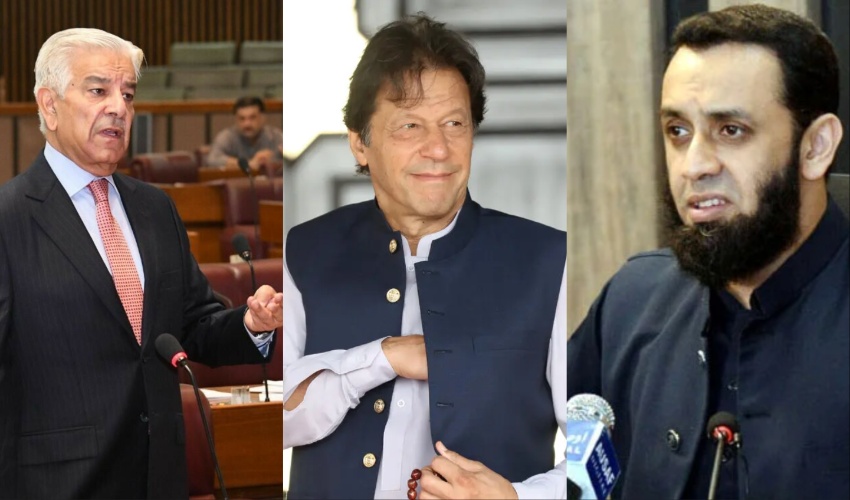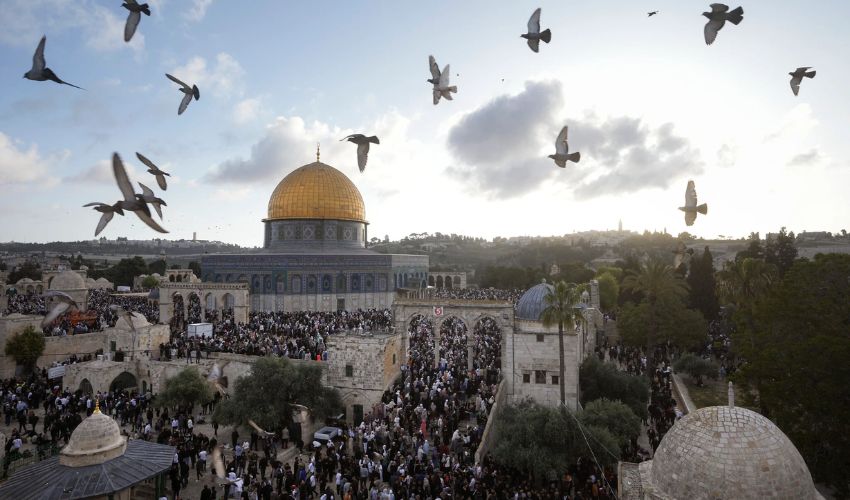Prime Minister Shehbaz Sharif-led government has sharply criticised Pakistan Tehreek-e-Insaf (PTI) Founder Imran Khan’s recent proposal to engage in dialogue with the military leadership.
Defense Minister Khawaja Asif and Federal Minister of Information and Broadcasting Attaullah Tarar both condemned Khan’s suggestion, arguing that such discussions should occur exclusively within the parliamentary framework.
In a recent statement, Mr Asif expressed concern over Khan’s purported requests for the General Headquarters (GHQ) to send a representative for talks.
Asif underscored the necessity of addressing the events of May 9, when protests and unrest occurred, before any further political dialogue could take place.
He accused a political party of avoiding paying respects to the martyrs’ families and emphasized the government's commitment to completing its constitutional term.
The defense minister also highlighted the need for political parties to unite against terrorism, cautioning against individual interpretations of the constitution which could undermine its integrity.
Additionally, Asif criticised the conditions of Khan’s imprisonment, alleging that the former premier enjoys special privileges in jail that were not extended to others in similar situations.
Tarar slates Imran Khan for taking U-turn
In a related development, Federal Minister of Information and Broadcasting Attaullah Tarar remarked on the rapid shift in Imran Khan’s stance from defiance to seeking dialogue with military officials.
Addressing a press conference in Islamabad, Tarar accused Khan of inconsistency and criticized his recent attempts to engage with the military, referring to it as a swift transition from “I will not leave” to “please talk to me.”
Tarar condemned the attacks on May 9, which included the desecration of martyrs' memorials, and criticized Khan’s social media campaigns against national institutions.
He alleged that Khan’s actions posed a security threat to the country and accused him of fostering instability through systematic campaigns against the military.
The information minister also suggested that Khan’s actions were detrimental to the nation’s security and linked his social media activities to those of the country’s adversaries.
He noted that investigations would reveal the extent of Khan’s alleged connections with hostile elements and blamed him for the deteriorating security situation in Khyber Pakhtunkhwa.
Tarar pointed out the recent economic improvements, suggesting that Khan’s imprisonment had a positive effect on the stock market, which he attributed to the reduction in political instability.
He concluded by criticising Khan for turning political discourse into a personal rivalry, which he claimed was damaging to the country’s stability and economic progress.



























